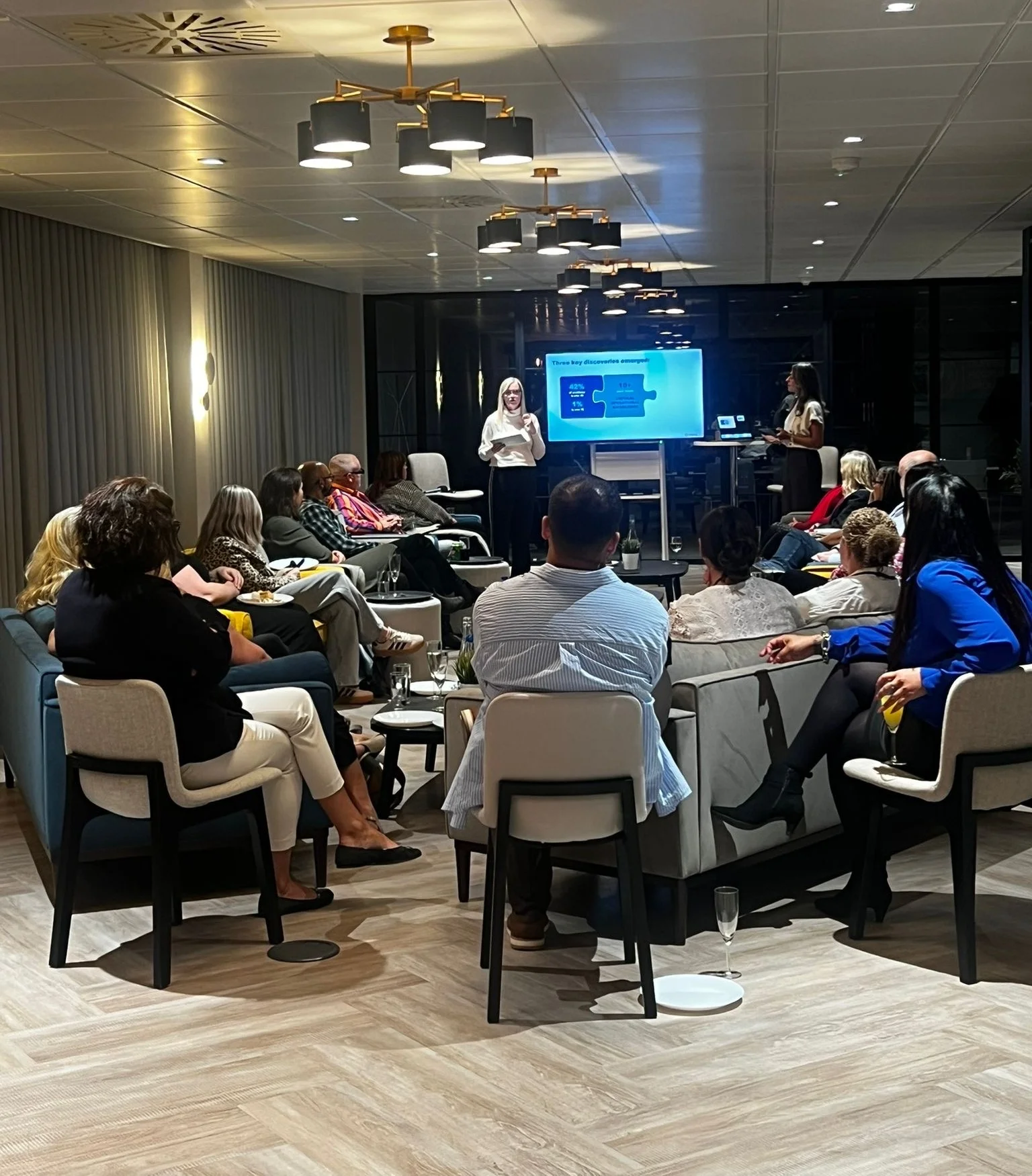
Of course, this approach might not be suitable for every role, or for every company. For positions that heavily rely on quick decision-making or adaptability, assessing a candidate's ability to handle unexpected situations during the interview might still be a relevant aspect of the selection process. However, for many roles, it’s an approach that can have multiple benefits, which we’ll explore below.
1. It’s more inclusive
Although most neurotypical people can handle job interviews reasonably well, for those with neurodivergences such as autism or ADHD, this isn’t necessarily the case. The high-stress, time-limited, and socially demanding nature of the assessment process can make it much harder to concentrate on questions and give answers that demonstrate their full potential. And let’s not forget the significant proportion of candidates who may suffer with mental health challenges such as anxiety, either; for them, a job interview can feel every bit as stressful as being asked to deliver a Ted Talk stark naked. For these candidates, being given job interview questions in advance can help level the playing field. After all, wouldn’t it be a shame if you interviewed your perfect candidate, but didn’t know it because they were too stressed to effectively answer questions?
2. It leads to more thoughtful answers
Giving job interview questions in advance means candidates have the chance to reflect on their experiences, skills, and relevant examples in a more comprehensive manner. This extra time allows them to delve into their past achievements and consider how these align with the requirements of the role. As a result, their answers will likely be more detailed, well-structured, and tailored to the specific role. It also alleviates the stress of having to think under pressure, meaning you’ll get a more accurate representation of their capabilities and potential contributions to the company. Think about it - how many times have you answered a question in a job interview, only to think of a much better response hours later?
3. It’ll make your company stand out
Employee experience doesn’t begin when your new hire walks through the door on their first day – it begins at the very start of the application process. Every interaction with your company from that point on is forming an impression, whether positive or negative. Providing interview questions ahead of time shows your organisation cares about reducing stress levels in an already anxiety-inducing situation, and that you want to give candidates the very best chance to succeed. Let’s say a talented candidate has multiple job options - this tactic can be a real differentiator that showcases your company as forward-thinking, empathetic, and focused on creating a positive candidate experience. This can leave a lasting impression whether a candidate accepts the job or not, potentially leading to positive word-of-mouth referrals and increased future applications.
4. It helps candidates understand what you want
Providing job interview questions ahead of time is a great way to give candidates an insight into the skills, knowledge and experience you’re looking for beyond the listed job description. For example, let’s say your job ad asks for "strong communication skills" and "creative thinking." Without context, these terms can be quite broad and open to interpretation. By giving candidates an idea of the questions you intend to ask, you can clarify your expectations and provide a better understanding of how these skills will be assessed. This approach also minimises any potential misunderstandings that might arise due to vague or generic interview prompts. Interviewees won't have to second-guess what you're looking for; instead, they can focus on providing detailed and targeted responses.
Wait, isn’t providing questions in advance sort of cheating?
Not really. After all, the best candidates will have already done their research to figure out the types of questions you’re likely to ask anyway, and will have prepared answers ahead of time to cover a wide range of them. Even more prepared candidates will come equipped with notes to help them remember points they want to cover. Ultimately, the goal of providing questions beforehand is to assess a candidate's ability to think critically, communicate effectively, and demonstrate their alignment with the role. It's not a shortcut or a way to cheat the process, but a way to create a fair and insightful evaluation environment that allows candidates to present themselves in the best possible light.
How can I prevent rehearsed answers?
Ask plenty of follow-up questions. For example, ‘Why did you approach it that way?’, ‘What was the biggest challenge you faced?’ or ‘Would you do anything differently next time around?’ This way, you’re still probing a candidate’s genuine thought processes and problem-solving abilities.
How far in advance should I provide job interview questions?
15 minutes? Six hours? 24 hours? Unfortunately, there’s no real best-practice answer for this question, but it’s helpful to consider the complexity of the questions you’ll be asking. For example, if you’re going to be asking a candidate about complex technical scenarios or ask them to provide any in-depth analysis, we’d recommend at least 24 hours. If you’ll just be sticking to standard job interview questions that any candidate might be familiar with and expect, six hours should be plenty – depending on what time of day the job interview is. Just make sure all candidates are given the same amount of time to prepare.
In conclusion, providing candidates with job interview questions ahead of time can be a nice way to shake up the assessment process, whilst alleviating some of the stress and anxiety. Bear in mind also that it doesn’t have to be all or nothing - you don’t necessarily need to give candidates the exact questions you’ll be asking word-for-word. Instead, you might choose to give them a general idea of the topics or themes you’d like to discuss. Alternatively, it might be an approach you decide to reserve only for junior candidates who aren’t used to high-pressure interview scenarios. Ultimately, the decision should align with your company's values, the nature of the role you're hiring for, and the candidate experience you aim to provide.
Looking for a helping hand with hiring? We specialise in recruiting for just about every industry and sector, from engineering and manufacturing and IT, to human resources and marketing. You can search all our divisions here, or leave us a message and we'll get back to you in no time. ]]>




